QuestionI have searched for a proper diet and get conflicting information for the african leopard tortoise. Is there a diet that is specific? I know that the diet is not complete for my tortoise. so far I always give collard greens, then mix when I can find dandelions, red leaf lettuce, green lettuce. The food is too wet. Can I give dry alfalfa, I have seen in the pet store in the rabbit or gerbil area? or straw or hay? I do not have a yard but I have a balcony. I have seen grasses and weeds mentioned but I do not know what they look like or their names. I can probably grow my own grass on a cookie sheet but what kind? My leopard tortoise is about 7 inches long and I soak once a week, It has fresh water and food every day. I change the paper anytime it excretes. I occasionally give a piece of cuttlebone until it gets dirty. I have also noticed a gel or cloudy gel looking substance in the urine. Is this something for the vet? I have also seen a crusty kind of white substance around the eye but it comes and goes? is this another vet thing? What kind of vet should I be looking for? I thank you for your time and any help you can give me.
AnswerHi Emily,
Leopard tortoises should have a diet that's roughly 70% grasses/hay and the rest leafy greens (good ones are turnip/dandelion greens, collards, kale, spring mix, etc.). Try to limit the lettuce as it's pretty wet for them; turnip greens are excellent if you can get them. Alfalfa hay has too much protein, but timothy hay, orchard grass, or bermuda hay are all good. Oxbow brand packaged hay is very good quality and available in a lot of pet and feed stores.
Provide a cuttlebone at all times so your tortoise can self-regulate calcium. Don't worry if it gets dirty; the tortoise won't care. It sounds like your tortoise is on newspaper. They shouldn't be kept bone dry, as it can lead to dehydration and eye problems (this is probably what is causing the crustiness around the eyes). Switch your substrate to a half and half mix of coir (bed-a-beast or ecoearth) and playsand, and keep it a little damp in the warmer area of the enclosure. You'll have to wet the substrate down thoroughly every few days to keep it damp. I would also soak twice a week and make sure there is a water dish big enough for the tortoise to get into completely. The cloudy substance in the urine is probably urates, which is the more solid part of their pee. Make sure that the urates don't become dry and gritty, as this is a sign of dehydration.
It's a good idea to have a vet lined up ahead of time. You can call your nearest herp society for recommendations, or look for an exotics vet that treats reptiles (although not all herp vets are experienced with tortoises). Don't allow a vet to give ivermectin for worming (fatal to tortoises) or vitamin A injections (too easy to overdose and correctable with diet).
Here's an excellent site for information: www.africantortoise.com. Good luck, and please ask if you have more questions.

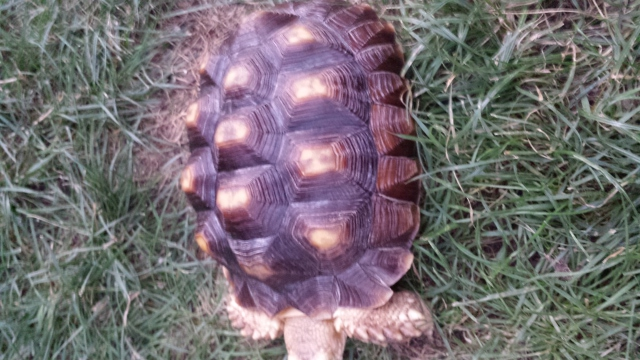 Tortoise identification
Question
Shell Belly
Hi,I think my tortois
Tortoise identification
Question
Shell Belly
Hi,I think my tortois
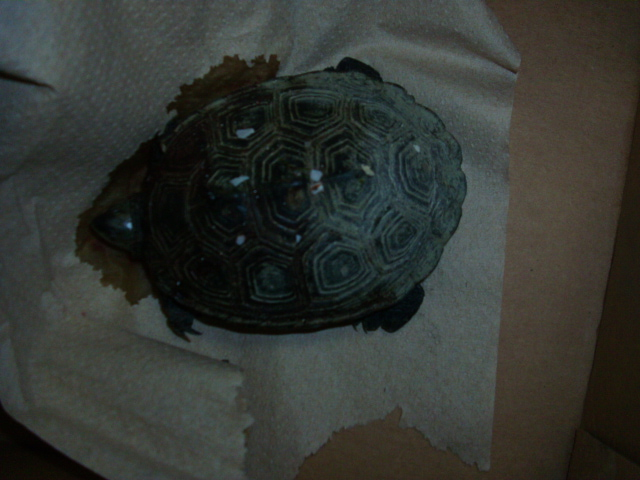 Injured wild turtle
Question
Turtle
Hello,
I found a wild turtle tha
Injured wild turtle
Question
Turtle
Hello,
I found a wild turtle tha
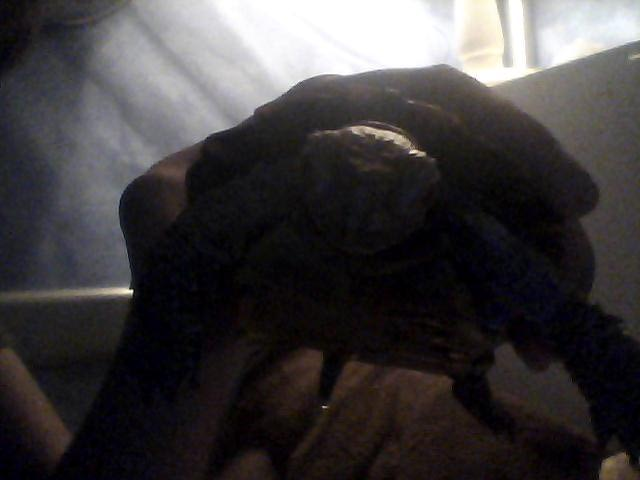 Eyes and Aim
Question
Bowseta
I have a female viatnamiese bla
Eyes and Aim
Question
Bowseta
I have a female viatnamiese bla
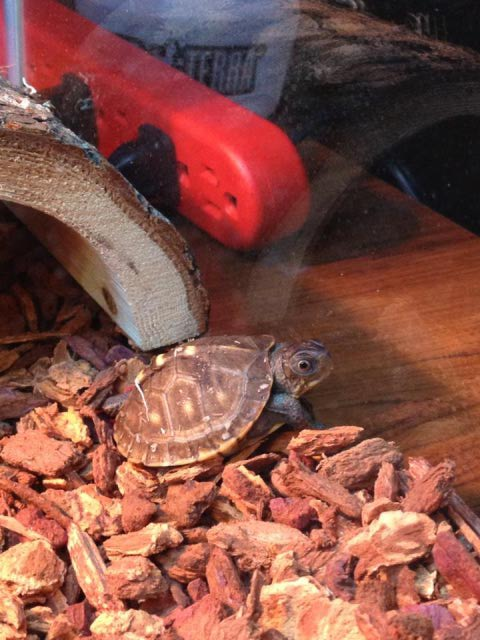 Baby Eastern Box Turtle
QuestionQUESTION: I just acquired a baby eastern box tu
Baby Eastern Box Turtle
QuestionQUESTION: I just acquired a baby eastern box tu
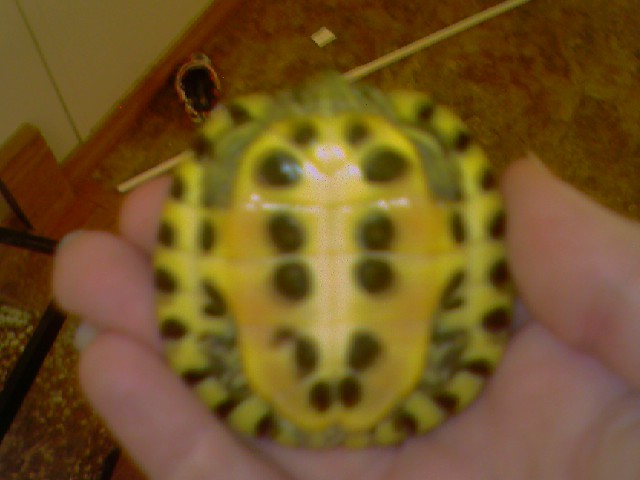 species of turtle
Question
belly of turtle
I was given a turtle from a fr
species of turtle
Question
belly of turtle
I was given a turtle from a fr